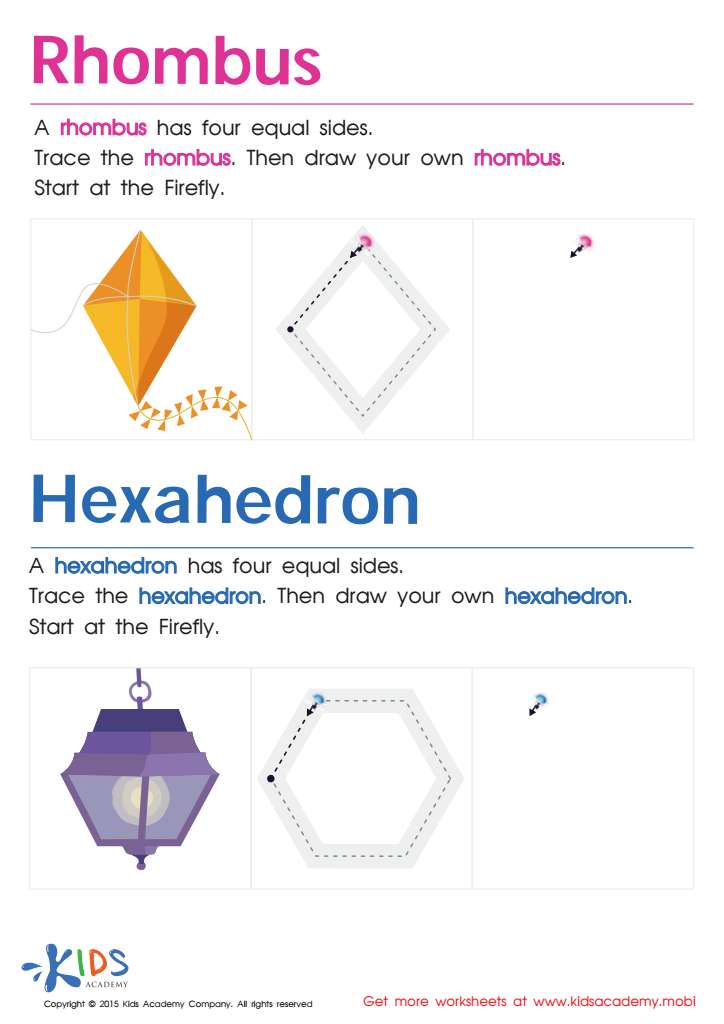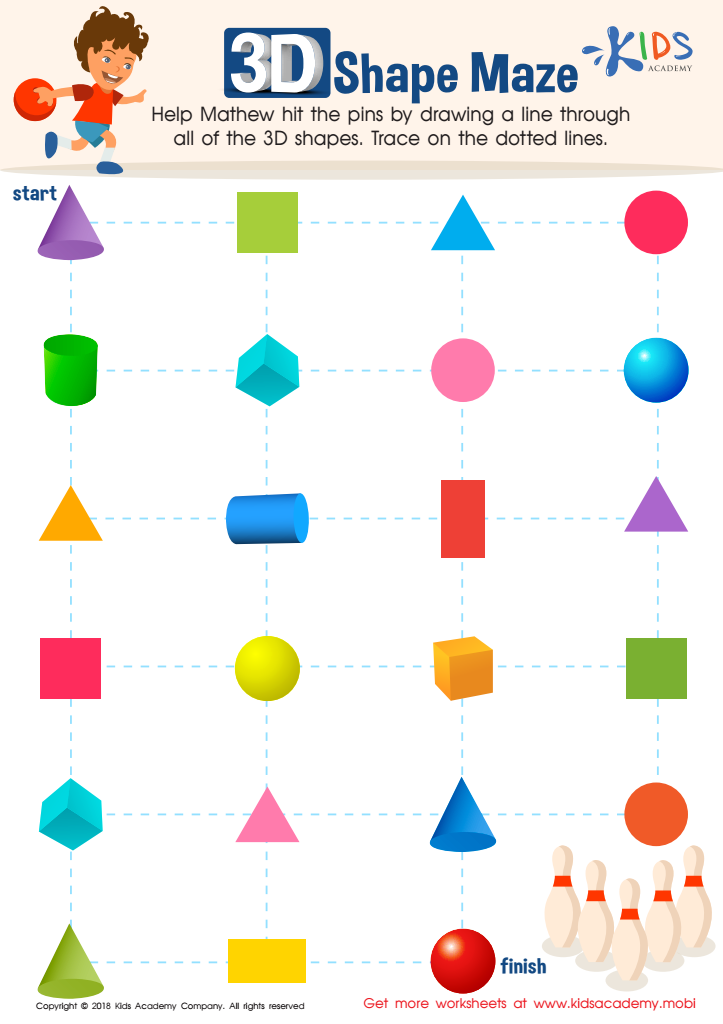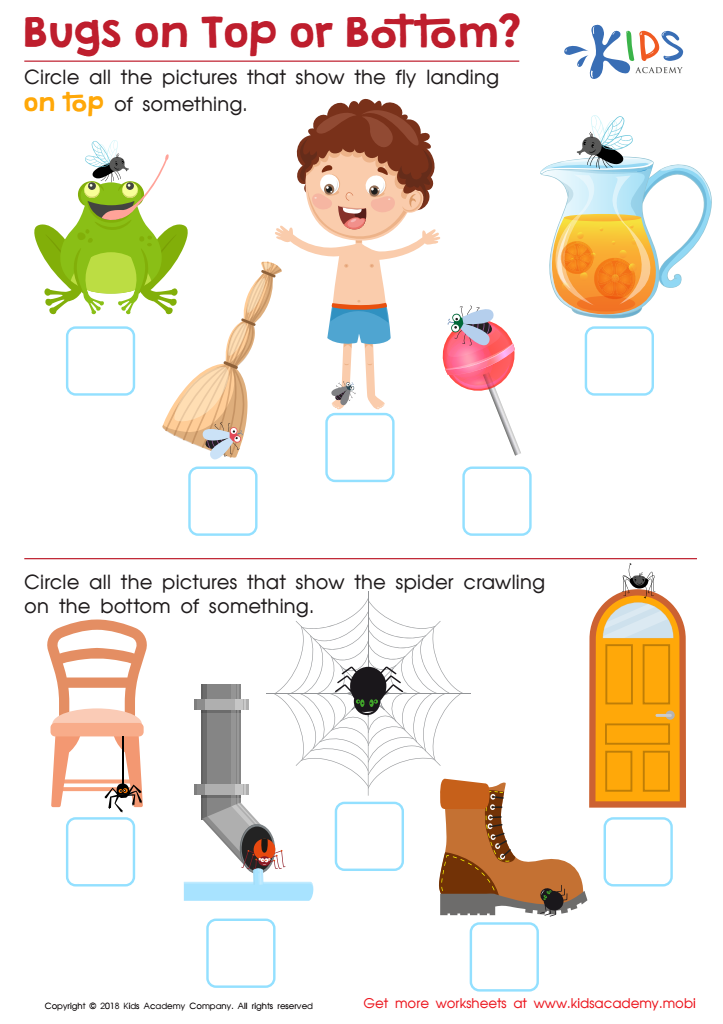Spatial reasoning Normal Math Worksheets for 5-Year-Olds
3 filtered results
-
From - To
Discover our engaging Spatial Reasoning Normal Math Worksheets designed for 5-year-olds! These age-appropriate resources help young learners develop essential spatial awareness and mathematical skills through fun activities and vibrant visuals. Each worksheet encourages critical thinking, problem-solving, and the ability to visualize shapes and positions, setting a strong foundation for future math success. Perfect for home or classroom use, our worksheets promote interactive learning, allowing children to explore the fascinating world of geometry and spatial relationships. Boost your child's confidence and proficiency in math while they play and learn! Browse our collection today for an enjoyable learning experience tailored to young minds.


Draw a Rhombus And a Hexahedron Printable


Shapes Maze Geometry Worksheet


Bugs on Top or Bottom? Worksheet
Spatial reasoning is a crucial cognitive skill that underpins various areas of learning, particularly in mathematics. For 5-year-olds, developing solid spatial reasoning abilities sets a foundation for understanding shapes, patterns, and how objects relate to one another in space. This foundational skill supports early math proficiency, fostering capabilities such as visualization, logical thinking, and problem-solving.
In a world increasingly driven by technology and design, children with strong spatial abilities are often better equipped to tackle challenges in STEM (Science, Technology, Engineering, Mathematics) fields later in their academic careers. Recognizing spatial reasoning in early childhood education helps nurture creativity and critical thinking—both essential for innovation.
Parents and teachers should care about enhancing spatial reasoning through various activities, like puzzles, block play, and drawing. These exercises encourage exploration, boost confidence in tackling math concepts, and promote social skills through collaborative play.
Moreover, integrating spatial reasoning into learning creates a seamless transition from play to structured learning, making mathematics engaging and accessible. Ultimately, prioritizing spatial reasoning at a young age helps equip children with needed skills for school and beyond, influencing their lifelong learning and problem-solving capabilities.
 Assign to My Students
Assign to My Students
















